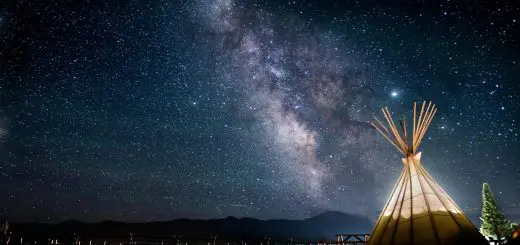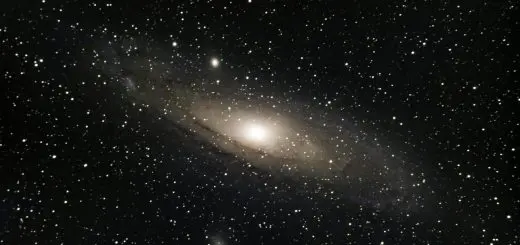How Climate Change Affects Indigenous Communities

Looking for more amazing products? Check out our online store and explore our collection here! Happy shopping!
Before diving in, please note: This post is for informational purposes only. If you’d like to know more about how we approach topics, feel free to check out our friendly Disclaimer Page.
Hey there, amazing readers! 
We’re committed to delivering quality posts, and your support (even just sticking around despite the ads) means everything to us. So, bear with us, and thanks for helping us keep the good vibes rolling. Now, on to the fun stuff!
TRANSLATE BUTTON AT THE END OF THE ARTICLE
Introduction: Understanding Climate Change and Indigenous Communities
Climate change is a pressing global issue that affects various populations worldwide, including indigenous communities.
These communities, often living in harmony with nature for generations, face unique challenges due to the changing climate.
Understanding the impact of climate change on indigenous peoples is crucial in addressing their specific needs and vulnerabilities.
This article will explore the historical context of climate change on indigenous communities, the displacement and loss of traditional lands, threats to indigenous cultures and traditions, vulnerability to extreme weather events, food insecurity, health impacts, water scarcity, loss of biodiversity, community resilience, and international efforts to address climate change in relation to indigenous communities.
Historical Context: Impact of Climate Change on Indigenous Peoples
Indigenous communities have long been stewards of the land, relying on traditional knowledge to sustain their way of life.
However, with the onset of climate change, these communities are facing unprecedented challenges.
Rising temperatures, changing weather patterns, and environmental degradation are threatening the very existence of indigenous peoples.
Historical records show that indigenous communities have been disproportionately affected by the adverse effects of climate change, leading to displacement, loss of traditional lands, and disruptions in cultural practices.
Displacement and Loss of Traditional Lands
One of the most significant impacts of climate change on indigenous communities is the displacement and loss of traditional lands.
Rising sea levels, melting glaciers, and extreme weather events force indigenous peoples to abandon their ancestral territories.
This displacement not only disrupts their way of life but also severs their connection to the land, which is essential for their cultural identity and spiritual beliefs.
As indigenous communities lose their traditional lands, they face challenges in maintaining their cultural practices and preserving their heritage for future generations.
Threats to Indigenous Cultures and Traditions
Climate change poses a direct threat to indigenous cultures and traditions, which are deeply rooted in their relationship with the environment.
The loss of biodiversity, depletion of natural resources, and degradation of ecosystems undermine the traditional practices of indigenous peoples.
For example, changes in weather patterns can disrupt hunting and fishing seasons, affecting the food security and livelihoods of indigenous communities.
Additionally, the erosion of cultural sites and sacred places due to extreme weather events further disconnects indigenous peoples from their heritage and history.
Vulnerability to Extreme Weather Events
Indigenous communities are particularly vulnerable to extreme weather events, such as hurricanes, droughts, and wildfires, intensified by climate change.
These events not only pose immediate risks to the lives and livelihoods of indigenous peoples but also exacerbate existing social and economic inequalities.
Limited access to resources, inadequate infrastructure, and geographic isolation make indigenous communities more susceptible to the impacts of extreme weather events.
As a result, indigenous populations face higher rates of displacement, food insecurity, and health challenges in the aftermath of these disasters.
Food Insecurity and Loss of Traditional Food Sources
Climate change disrupts the availability and accessibility of traditional food sources for indigenous communities, leading to food insecurity and nutritional deficiencies.
Changes in temperature and precipitation patterns affect the growth of crops, availability of wild foods, and productivity of fisheries, impacting the dietary diversity and cultural significance of indigenous diets.
As a result, indigenous peoples face challenges in maintaining their traditional food practices, which are essential for their health, well-being, and cultural identity.
The loss of traditional food sources also contributes to the erosion of indigenous knowledge and practices related to food sovereignty and sustainable agriculture.
Health Impacts: Increased Risks and Challenges
The health impacts of climate change on indigenous communities are profound, with rising temperatures, changing disease patterns, and environmental degradation posing increased risks and challenges.
Indigenous peoples are more susceptible to respiratory illnesses, waterborne diseases, and vector-borne diseases due to limited access to healthcare, inadequate sanitation, and exposure to environmental contaminants.
Climate-related disasters also exacerbate mental health issues, trauma, and social disruptions within indigenous communities.
Addressing the health impacts of climate change requires tailored interventions that consider the unique needs and vulnerabilities of indigenous populations.
Water Scarcity and Access to Clean Water
Water scarcity and access to clean water are pressing concerns for indigenous communities facing the impacts of climate change.
Changes in precipitation patterns, melting glaciers, and contamination of water sources threaten the availability of safe drinking water for indigenous peoples.
Limited access to clean water not only affects the health and well-being of indigenous communities but also hinders their ability to practice cultural traditions and ceremonies that rely on water resources.
Addressing water scarcity requires sustainable water management practices, community-based solutions, and partnerships that prioritize the rights and needs of indigenous peoples.
Loss of Biodiversity and Traditional Knowledge
The loss of biodiversity and traditional knowledge is a critical consequence of climate change for indigenous communities.
Environmental degradation, deforestation, and habitat destruction diminish the diversity of plant and animal species that indigenous peoples depend on for food, medicine, and cultural practices.
The erosion of traditional knowledge systems, passed down through generations, further compounds the challenges faced by indigenous communities in adapting to changing environmental conditions.
Protecting biodiversity and traditional knowledge is essential for the resilience and sustainability of indigenous cultures and ecosystems in the face of climate change.
Community Resilience and Adaptation Strategies
Indigenous communities demonstrate remarkable resilience and adaptation strategies in response to the impacts of climate change.
Drawing on traditional knowledge, cultural practices, and community networks, indigenous peoples develop innovative solutions to mitigate risks and build adaptive capacity.
Community-led initiatives, such as sustainable agriculture, renewable energy projects, and disaster preparedness programs, empower indigenous communities to address the challenges of climate change on their own terms.
Supporting community resilience and adaptation strategies is essential for promoting sustainable development, preserving cultural heritage, and fostering environmental stewardship among indigenous peoples.
International Efforts to Address Climate Change
International efforts to address climate change increasingly recognize the importance of indigenous knowledge, rights, and participation in shaping sustainable solutions.
Global initiatives, such as the Paris Agreement and the United Nations Declaration on the Rights of Indigenous Peoples, emphasize the role of indigenous communities in climate action and environmental conservation.
Indigenous peoples’ traditional ecological knowledge, biodiversity stewardship, and land management practices offer valuable insights into climate change adaptation, mitigation, and resilience strategies.
Collaborative partnerships between indigenous communities, governments, and civil society are essential for achieving climate justice, protecting human rights, and safeguarding the planet for future generations.
Conclusion: Urgent Need for Action and Support
In conclusion, the impact of climate change on indigenous communities is profound and multifaceted, requiring urgent action and support to address their specific needs and vulnerabilities.
Displacement, loss of traditional lands, threats to cultures and traditions, vulnerability to extreme weather events, food insecurity, health impacts, water scarcity, loss of biodiversity, and community resilience are key challenges facing indigenous peoples in the face of climate change.
International efforts to address climate change must prioritize the rights, knowledge, and participation of indigenous communities to ensure equitable and sustainable solutions.
By respecting indigenous peoples’ traditional values, promoting community-led adaptation strategies, and fostering partnerships for climate action, we can collectively work towards a more resilient, inclusive, and sustainable future for all.

The Enlightenment Journey is a remarkable collection of writings authored by a distinguished group of experts in the fields of spirituality, new age, and esoteric knowledge.
This anthology features a diverse assembly of well-experienced authors who bring their profound insights and credible perspectives to the forefront.
Each contributor possesses a wealth of knowledge and wisdom, making them authorities in their respective domains.
Together, they offer readers a transformative journey into the realms of spiritual growth, self-discovery, and esoteric enlightenment.
The Enlightenment Journey is a testament to the collective expertise of these luminaries, providing readers with a rich tapestry of ideas and information to illuminate their spiritual path.
Our Diverse Expertise
While our primary focus is on spirituality and esotericism, we are equally passionate about exploring a wide range of other topics and niches 

To ensure we provide the most accurate and valuable insights, we collaborate with trusted experts in their respective domains 
Our blog originally focused on spirituality and metaphysics, but we’ve since expanded to cover a wide range of niches. Don’t worry—we continue to publish a lot of articles on spirituality! Frequently visit our blog to explore our diverse content and stay tuned for more insightful reads.
Hey there, amazing reader! 
Check out our store here and take a peek at some of our featured products below! Thanks for being awesome!











